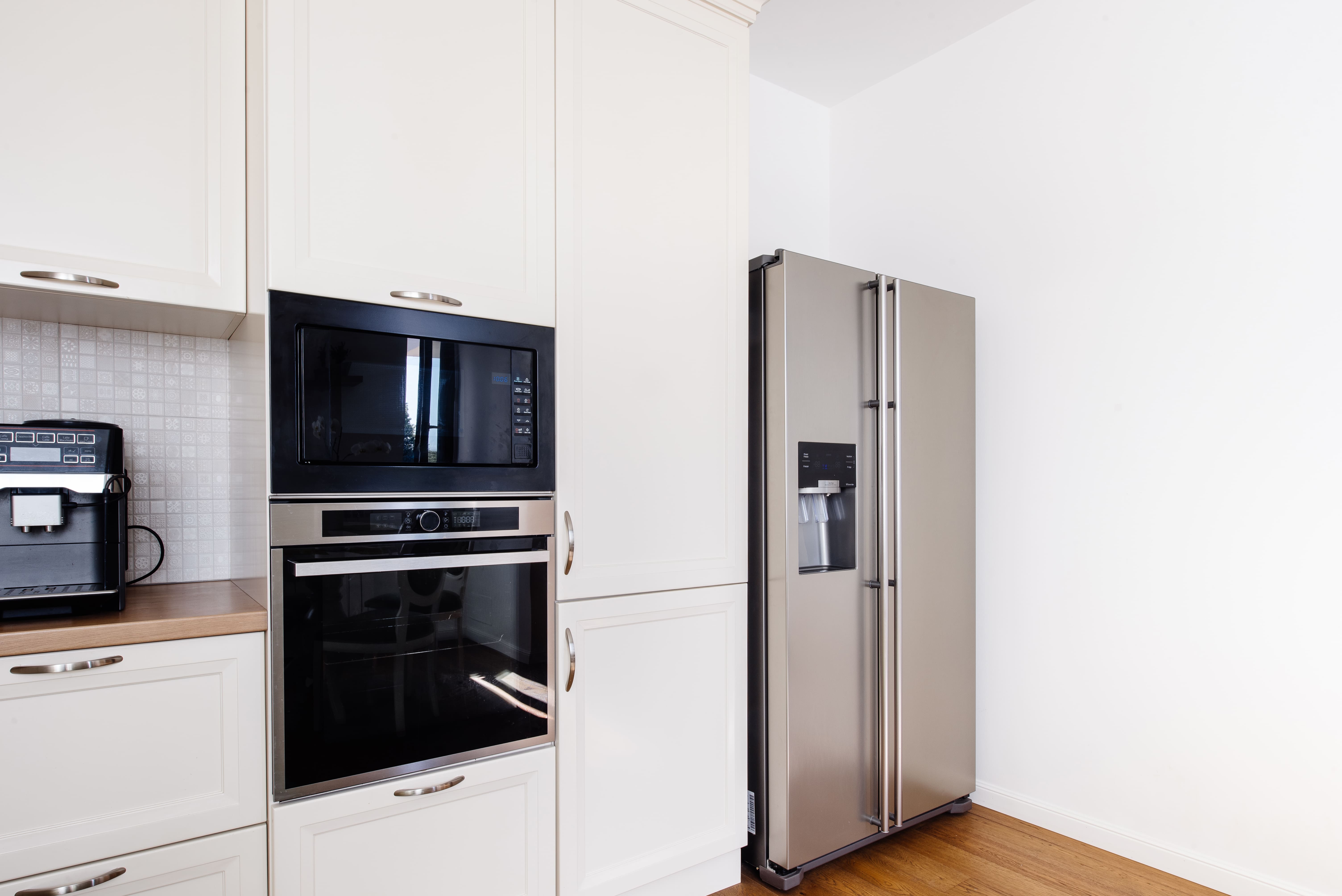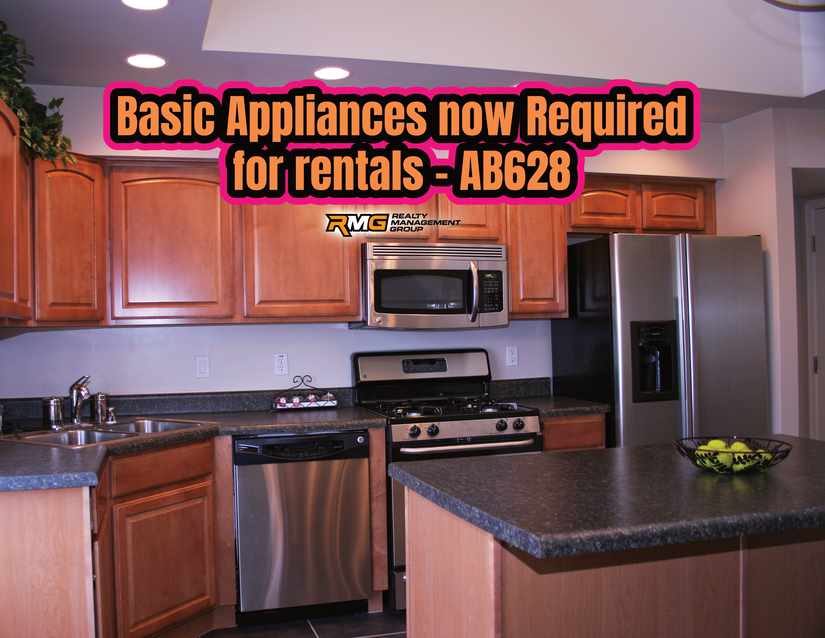Basic Appliances Now Required for Rentals – AB 628
Key Takeaways
- Beginning January 1, 2026, California landlords must provide a working stove and refrigerator in all new and renewed rental agreements.
- The appliances must be in good working order but don’t have to be brand-new.
- The three types of housing units including shared kitchens and supportive housing and SRO units continue to be exempt from the ban.
- Landlords will be responsible for maintenance and replacement unless tenants choose to provide their own.
- The new regulations require San Diego Property Managers and Landlords perform upgrades and create budgets for appliances and modify lease agreements.
- The process of early preparation leads to better compliance results and improved rental property marketability.
Table of Contents
- Why This Law Matters in San Diego
- What AB 628 Requires
- Impacts on San Diego Landlords and Properties
- How to Prepare Your Units
- Risks and Challenges
- Final Thoughts
- FAQ
Why This Law Matters in San Diego
San Diego’s rental market already ranks among the least affordable in the nation. The majority of renters anticipate standard kitchen equipment to be included in their rental properties. The law established by AB 628 makes the requirement for a working stove and refrigerator part of California's habitability standards.
Local property owners must establish new compliance requirements and bear additional expenses through this process but it provides them with a marketing advantage. The rental market shows a growing preference for turn-key units which are available for immediate occupancy and appliance inclusion helps properties stand out in competitive rental markets.
What AB 628 Requires
- All leases that became effective after January 1 2026 must follow the new regulations.
- Requires every unit to include a stove and refrigerator in good working condition.
- Removes the earlier proposed rule requiring appliances less than ten years old.
- The law provides exemptions for buildings that have common kitchen areas and supportive housing facilities and specific types of specialized facilities.
- The law requires landlords to perform maintenance tasks and equipment repairs and replacements for all appliances they provide.
- The lease agreement needs to contain a clause which enables tenants to bring their own refrigerator for use in the rental premises.
- The failure to follow these regulations will result in a unit becoming “untenantable” which allows tenants to request maintenance work or rent adjustments.
 Impacts on San Diego Landlords and Properties
Impacts on San Diego Landlords and Properties
The owners must allocate funds for acquiring and setting up and sustaining appliances throughout their entire property collection. The price of mid-range models adds up when you buy several units at once.
Rent Adjustments – Owners can implement small rent increases for new leases to recover their expenses. The rent control measures in San Diego along with its competitive rental market require all rent increases to remain affordable.
The leasing process becomes more efficient when properties start their market entry with operational appliances. The building will gain more appeal through energy-efficient appliances and stainless steel finishes which will enable small rent adjustments.
A dependable vendor network together with warranty protection enables successful maintenance planning to prevent equipment failures which cause service interruptions and tenant complaints.
How to Prepare Your Units
- The inspection process should start with existing units to determine which properties already fulfill the new standard requirements and which require additional improvements.
- Plan your purchases ahead of time to verify bulk price deals and shipping times and installation fees because supply shortages during the year-end period are expected.
- Update leases – Add clear clauses specifying which appliances are provided and who maintains or replaces them.
- Establish a maintenance plan to track equipment age and maintenance records which will help you replace them before they stop working.
- The first step for improvement implementation should focus on vacant properties which require renovation work before January 2026.
- Send advance notice to tenants which should include details about the change and your upgrade schedule and policy modifications.
- Document compliance – Keep receipts, photos, and service logs to protect against habitability disputes.
Risks and Challenges
- The ownership expenses for small landlords who manage older buildings have increased in cost.
- The process of obtaining or putting in appliances becomes challenging after the specified deadline.
- The process of identifying tax exemptions and handling shared kitchen areas leads to possible misunderstandings.
- The rental market in competitive neighborhoods faces high pressure due to restricted ability to adjust prices.
- Additional wear-and-tear and maintenance costs for heavily used units.
Final Thoughts
The California habitability law AB 628 stands as a major update to the state's building codes during the last few years. San Diego landlords need to plan ahead and invest money to meet the requirements but this process enables them to create updated rental properties that attract stable residents. Acting early means
Request a Free Rental AnalysisContact Realty Management Group
Need help budgeting, sourcing, installing, and maintaining required appliances—or updating leases to comply with AB 628 across your San Diego portfolio?
📞 (619) 456-0000
✉️ info@choosermg.com
🌐 www.choosermg.com
Related Articles
FAQ
What does AB 628 require for California rentals?
Beginning January 1, 2026, California landlords must provide a working stove and refrigerator in all new and renewed rental agreements.
Are brand-new appliances required?
The appliances must be in good working order but don’t have to be brand-new.
Which units are exempt?
The three types of housing units including shared kitchens and supportive housing and SRO units continue to be exempt from the ban.
Who handles ongoing maintenance?
Landlords will be responsible for maintenance and replacement unless tenants choose to provide their own.
How should San Diego landlords prepare?
The new regulations require San Diego landlords to perform upgrades and create budgets for appliances and modify lease agreements. The process of early preparation leads to better compliance results and improved rental property marketability.


